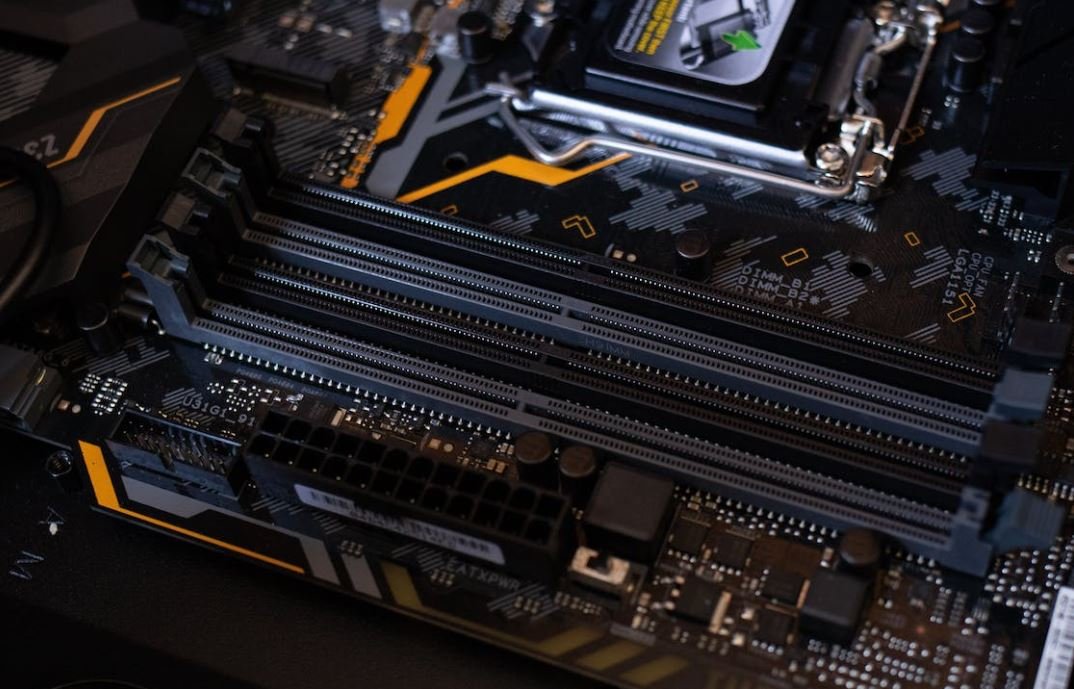Are Film Cameras Worth It?
With the advent of digital photography, Film Cameras have become less popular. However, many photography enthusiasts and professionals still swear by the unique look and experience that film cameras offer. In this article, we will explore whether film cameras are worth investing in, even in the digital age.
Key Takeaways:
- Film cameras offer a distinct and timeless aesthetic.
- Using film cameras can enhance your photographic skills and creativity.
- There is a film camera for every budget and skill level.
- The film development process adds excitement and anticipation to photography.
- Film cameras can provide a break from the constant digital connectivity.
One of the main advantages of film cameras is the unique aesthetic they produce. The grain and color rendition of film photos have a distinct look that many photographers find appealing. This timeless quality can add a touch of nostalgia and artistry to your images, setting them apart from the crisp, clean look of digital photos. *Film photography can evoke emotions and captivate viewers in ways digital cannot.*
Furthermore, film photography encourages photographers to slow down and be more intentional with their shots. Unlike with digital cameras, where you can take numerous photos at no extra cost, film photographers have to carefully consider each frame. This limitation can help improve your skills in framing, composition, and exposure. *Every shot counts, making you think deeper about the subject and how to capture it effectively.*
Table 1: Comparison of Film Cameras and Digital Cameras
| Aspect | Film Cameras | Digital Cameras |
|---|---|---|
| Image Quality | Distinct film aesthetic, grain, and color rendition | High resolution, sharp details |
| Cost | Initial investment, cost of film rolls, and development | Higher upfront cost for quality gear; negligible cost per shot |
| Flexibility | Limitations of film format, limited ISO range | Wide range of lenses, customizable settings, high ISO capabilities |
In terms of cost, film cameras can be more expensive initially, particularly if you invest in high-end equipment. Additionally, the cost of film rolls and development can add up over time. However, it’s important to note that the ongoing expenses for film photography can also help to limit excessive shooting and encourage more thoughtful and deliberate image-making. *Film cameras can teach you the value of each frame and prevent mindless clicking.*
In today’s digital age, film photography can also provide a welcome break from constant connectivity and instant gratification. Shooting film requires patience, as you have to wait to develop and see the results. This delay can bring back a sense of surprise and anticipation, similar to the days when photos were taken on film and needed to be developed. *The process becomes a rewarding experience, enhancing the joy of capturing moments.*
Table 2: Types of Film Cameras
| Type | Description |
|---|---|
| 35mm Cameras | Compact and versatile, can be a great starting point for beginners. |
| Medium Format Cameras | Larger negatives, higher image quality, and great for studio photography. |
| Large Format Cameras | Produce highly detailed images, often used by professional photographers. |
There are film cameras available for every skill level and budget. From the compact and affordable 35mm cameras to the high-quality medium format or large format cameras, you can choose one that suits your needs and preferences. *Everyone can find a film camera that aligns with their requirements and budget.*
Table 3: Advantages and Disadvantages of Film Cameras
| Advantages | Disadvantages |
|---|---|
| Distinct aesthetics | Higher initial cost |
| Improved skills and creativity | Ongoing expenses for film and development |
| Break from digital connectivity | Limitations of film format |
In conclusion, film cameras can be a worthwhile investment for photographers who desire a unique and timeless aesthetic, desire to enhance their skills, and want a break from the constant digital connectivity. While they may come with higher initial costs and ongoing expenses, the rewards of film photography in terms of image quality, creative development, and overall experience can outweigh the drawbacks. *Consider adding a film camera to your photographic arsenal and explore the beauty of analog photography.*

Common Misconceptions
Misconception 1: Film cameras are outdated and have no place in modern photography
Although digital cameras have gained popularity in recent years, film cameras still hold a unique place in the world of photography. Contrary to popular belief, film cameras are not outdated and can offer distinct advantages over their digital counterparts.
- Using film can give your photographs a classic, nostalgic feel that digital images often lack.
- Film cameras often produce higher resolution images compared to entry-level digital cameras.
- Film cameras offer a more tactile and immersive photography experience, allowing you to slow down and truly engage with the art of capturing a moment.
Misconception 2: Film cameras are expensive and require frequent purchases of film rolls
One of the main misconceptions about film cameras is that they are costly to use in terms of film roll purchases and developing expenses. While it is true that film and development costs add up over time, there are several ways to make shooting with film more affordable.
- You can find used film cameras in good condition at a fraction of the price of a new digital camera.
- Film rolls can be purchased in bulk at discounted rates, allowing you to save money in the long run.
- With practice and careful consideration, you can minimize the number of shots you take, reducing the need for frequent purchases of film rolls.
Misconception 3: Film cameras offer inferior image quality compared to digital cameras
It is a common misconception that film cameras cannot produce images as sharp and vibrant as digital cameras. However, film has a unique aesthetic that many photographers cherish and strive to replicate in digital post-processing.
- Film has a greater dynamic range, which allows it to capture a wider range of tones and details in both highlights and shadows.
- The absence of digital noise in film images often results in a clean and grain-like texture that can add character and depth to your photographs.
- Film photographs have a distinct natural and organic look that can be challenging to achieve through digital manipulation alone.
Misconception 4: Film cameras are difficult to use and require extensive technical knowledge
Another misconception about film cameras is that they are complex and require extensive technical knowledge to operate effectively. While film photography does involve a learning curve, it can be an enjoyable and educational process for photographers of all skill levels.
- Many film cameras have simple and intuitive controls, making them accessible even to beginners.
- Learning about exposure, composition, and film types can help you develop a better understanding of the fundamentals of photography.
- Experimenting with different films and techniques can foster creativity and spark new artistic ideas.
Misconception 5: Film cameras are not versatile and limit creative possibilities
One of the most common misconceptions about film cameras is that they are not versatile and restrict your creative possibilities. However, film photography offers a wide range of artistic opportunities and can inspire a fresh approach to capturing images.
- Each film stock has its own unique characteristics, allowing you to experiment with different color renditions, grain structures, and sensitivities to light.
- Film cameras can be used for various genres, including street photography, landscape photography, portrait photography, and more.
- The limited number of shots per roll encourages photographers to be more selective and intentional, leading to thoughtful compositions and well-executed shots.

Advantages of Film Cameras
Film cameras have long been a popular choice for photography enthusiasts due to their unique qualities and nostalgic appeal. Here are 10 compelling reasons why film cameras are worth considering:
Duration of Film Development Process
The film development process can range in duration depending on various factors such as the type of film, the lab used, and the desired level of processing. On average, developing a roll of film takes about 2-3 days. However, certain labs offer expedited services that can develop film within 24 hours.
Image Resolution
When it comes to image resolution, film cameras have their own charm. Film has a natural grain structure that allows for a unique texture and depth in photographs. This distinct look cannot be fully replicated by digital cameras, making it a preferred choice for artists and photographers aiming for a retro aesthetic.
Low Light Performance
Film cameras excel in low light conditions, capturing stunning details and rich tonality without the need for excessive artificial lighting. This advantage stems from the composition of film, which reacts more effectively to available light compared to digital sensors. Film photographers can often achieve remarkable results in challenging lighting situations.
Aesthetic Flexibility
Experimentation with different film types grants photographers a wide variety of aesthetic options. Each film emulsion has its own distinct characteristics and color profiles, enabling photographers to tailor their images based on personal preferences or specific creative goals. This versatility is particularly appealing to artists seeking a unique visual style.
Longevity of Negatives
The longevity of film negatives is an aspect that greatly benefits artists and archivists. When stored correctly, negatives can last for decades or even centuries, providing a tangible and reliable record of captured moments. This longevity ensures that film photographers can reprocess, experiment, and reprint images long after they were initially captured.
Inherent Dynamic Range
Film cameras offer a wide dynamic range, meaning they capture a broader spectrum of tones from deep shadows to bright highlights. This attribute allows film photographers to retain more details in the darkest and brightest parts of their images, resulting in a more natural and nuanced representation of the scene.
Intentional Slowness
Using a film camera encourages photographers to slow down and be more deliberate with each shot. Unlike digital cameras, film cameras have a limited number of exposures per roll, fostering a need for thoughtfulness and intentionality. This slower pace encourages photographers to carefully compose their shots and make every frame count.
Reduced Post-Processing
Film cameras inherently apply various tones and colors to an image, reducing the need for extensive post-processing. This advantage can save photographers significant time and effort in editing, allowing them to focus more on shooting and less on computer work.
Learning Opportunities
Mastering film photography requires a deeper understanding of light, composition, and the technical aspects of the craft. Operating and managing film cameras demand patience, discipline, and a willingness to experiment. Through this process, photographers can enhance their skills and broaden their artistic horizons.
Authenticity and Nostalgia
The charm and nostalgia associated with film cameras can add an extra layer of authenticity to photographs. Film captures moments in a tangible, physical form, which can evoke emotions and memories in a way that digital images often struggle to replicate. This unique quality resonates with many individuals seeking an art form that harkens back to a simpler era.
In this digital age, film cameras continue to hold a special place in the hearts of photography enthusiasts. They offer unique advantages in terms of aesthetics, longevity, and the artistic process. While digital cameras provide convenience and immediate results, film cameras exude a timeless appeal that captures the hearts and minds of many passionate photographers.
Frequently Asked Questions
What are film cameras?
How do film cameras work?
Why should I consider using film cameras?
Are film cameras still relevant in the digital age?
Are film cameras more expensive than digital cameras?
Can film cameras produce better image quality than digital cameras?
Do film cameras require special skills?
Are film cameras more time-consuming to use?
Where can I buy film cameras?
What type of film should I use?




